Syria's opposition fighters raced into Damascus unopposed Sunday, overthrowing President Bashar al-Assad and ending nearly six decades of his family's iron-fisted rule after a lightning advance that reversed the course of a 13-year civil war.
The toppling of Assad's tyrannical regime, triggered celebrations across the country and beyond.
Bashar al-Assad is in Moscow with his family after Russia granted them asylum on humanitarian grounds, a Kremlin source told Russian news agencies yesterday, and a deal has been done to ensure the safety of Russian military bases.
"Syrian President Assad of Syria and members of his family have arrived in Moscow. Russia has granted them asylum on humanitarian grounds," the Interfax news agency quoted the unnamed Kremlin source as saying.
In one of the most consequential turning points in the Middle East for generations, the fall of Assad's government wiped out a bastion from which Iran and Russia exercised influence across the Arab world.
His sudden overthrow limits Iran's ability to spread weapons to its allies and could cost Russia its Mediterranean naval base. It also may pave the way for millions of refugees scattered for more than a decade in camps across Turkiye, Lebanon and Jordan to finally return home.
For Syrians, it brought a sudden unexpected end to a war that had been in deep freeze for years, with hundreds of thousands dead, cities pounded to dust, an economy hollowed out by global sanctions and seemingly no resolution in sight.
"How many people were displaced across the world? How many people lived in tents? How many drowned in the seas?" the top rebel commander Abu Mohammed al-Golani told a huge crowd at the medieval Umayyad Mosque in central Damascus, referring to refugees who drowned trying to reach Europe.
"A new history, my brothers, is being written in the entire region after this great victory," he said. It would take hard work to build a new Syria which he said would be "a beacon for the Islamic nation".
The Assad police state — known since his father seized power in the 1960s as one of the harshest in the Middle East with hundreds of thousands of political prisoners in its gulag — melted away overnight.
Bewildered and elated inmates poured out of jails after rebels blasted away the locks on their cells.
Reunited families wept and wailed in joy. Newly freed prisoners were filmed at dawn running through the Damascus streets holding up the fingers of both hands to show how many years they had been in prison.
As the sun set in Damascus without Assad for the first time, the roads leading into the city were mostly empty, apart from motorcycles carrying armed men and rebel vehicles caked with brownish mud as camouflage.
Some men could be seen looting a shopping centre on the road between the capital and the Lebanese border, stuffing goods into plastic bags or into pick-up trucks. The myriad checkpoints lining the road to Damascus were empty. Posters of Assad had been torn at his eyes. A burning Syrian military truck was parked diagonally on the road out of the city.
A thick column of black smoke billowed out from the Mazzeh neighbourhood, where Israeli strikes earlier had targeted Syrian state security branches, according to two security sources.
Throughout the evening, intermittent gunfire rang out throughout the city in apparent celebration.
Shops and restaurants closed early in line with a curfew imposed by the rebels. Just before it came into effect, people could be seen briskly walking home with stacks of bread.
People were seen walking inside the Al-Rawda Presidential Palace, with some leaving carrying furniture from inside. A motorcycle was parked on the intricately-laid parquet floor of a gilded hall.
Golani, reassuring members of minority sects and foreign countries, said there was no room for turning back.
"The future is ours," he said in a statement read on state TV.
The Syrian rebel coalition said it was working to complete the transfer of power to a transitional governing body with executive powers.
Mohammad Ghazi al-Jalali, prime minister under Assad, called for free elections and said he had been in contact with Golani to discuss the transitional period.
Jubilant supporters of the revolt stormed Syrian embassies in a number of cities around the world, lowering red, white and black Assad-era flags and replacing them with the green, white and black flag flown throughout the war by his opponents.
French President Emmanuel Macron said "the barbaric state has fallen" and paid tribute to the Syrian people.
President Joe Biden's administration was monitoring developments but has not adjusted the positioning of the US troops, officials told Reuters.
The biggest strategic losers were Russia and Iran, which had intervened in the war's early years to rescue Assad, helping him recapture most territory and all major cities. The front lines were frozen four years ago under a deal Russia and Iran reached with Turkey.
Even after Assad had fled, Israel continued to strike targets associated with his government and its Iranian-backed allies, including one in Damascus where Israel had previously accused Iran of developing missiles. Hezbollah had pulled all its remaining forces from Syria on Saturday, two Lebanese security sources said.
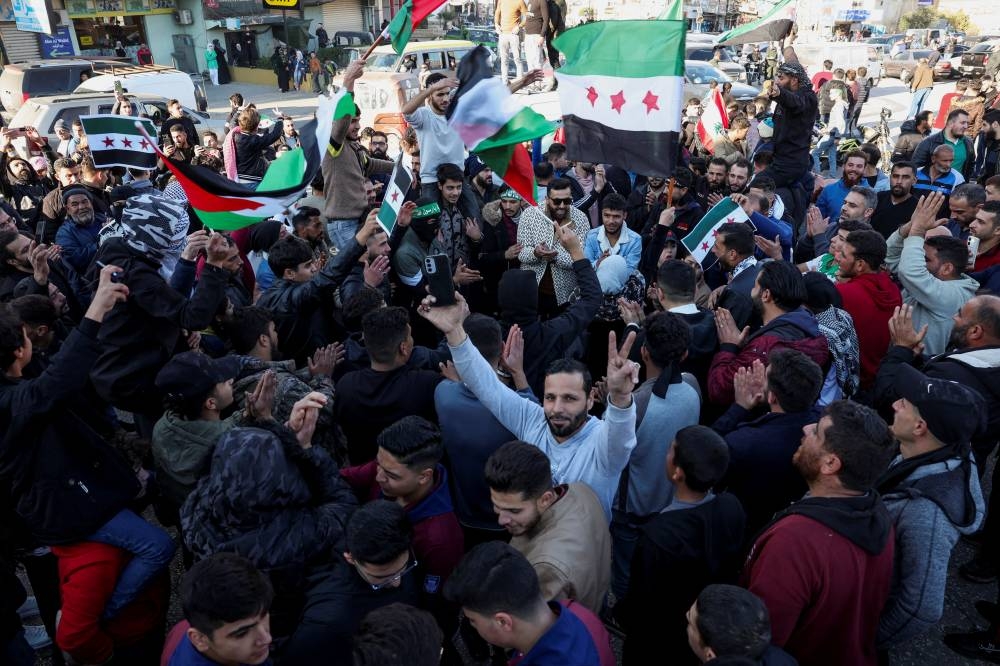
People celebrate, after Syrian rebels announced that they have ousted President Bashar al-Assad, at Majdal Anjar in Bekaa, Lebanon, on Sunday. REUTERS
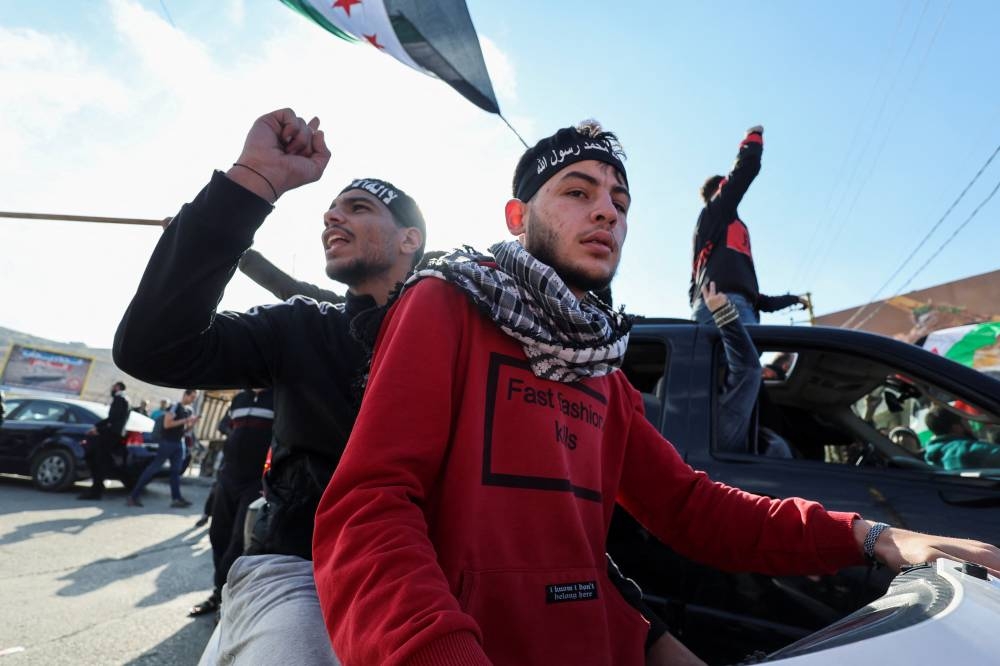
People, including Syrians, celebrate after Syrian rebels announced that they have ousted President Bashar al-Assad, at Masnaa Border Crossing, Lebanon, on Sunday. REUTERS
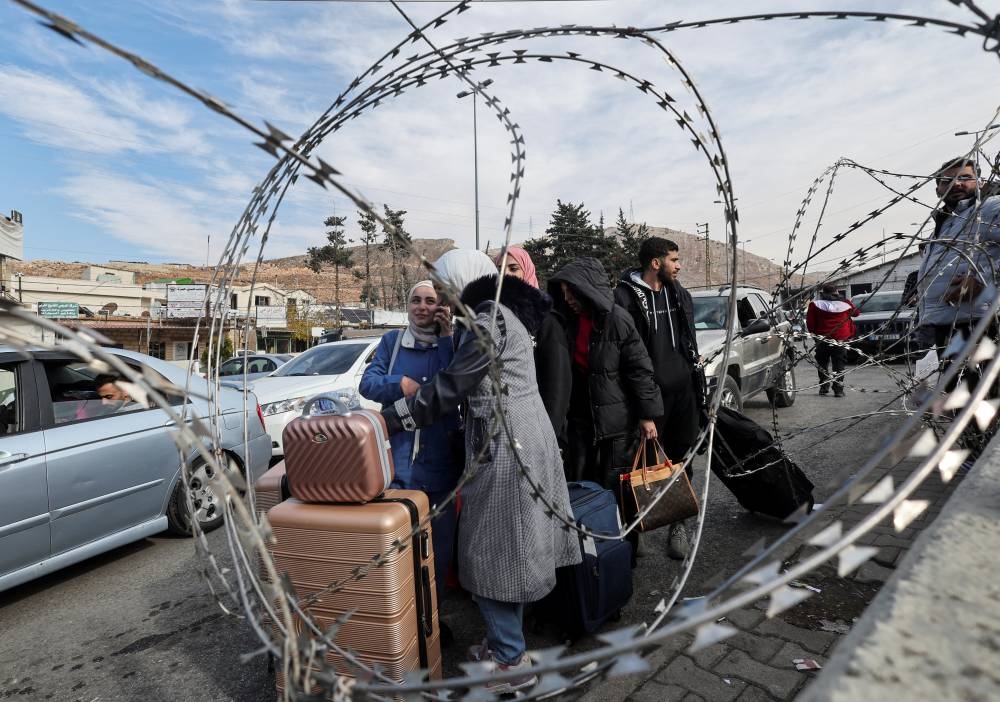
People stand near razor wire at Masnaa Border Crossing, after Syrian rebels announced that they have ousted President Bashar al-Assad, Lebanon, on Sunday. REUTERS
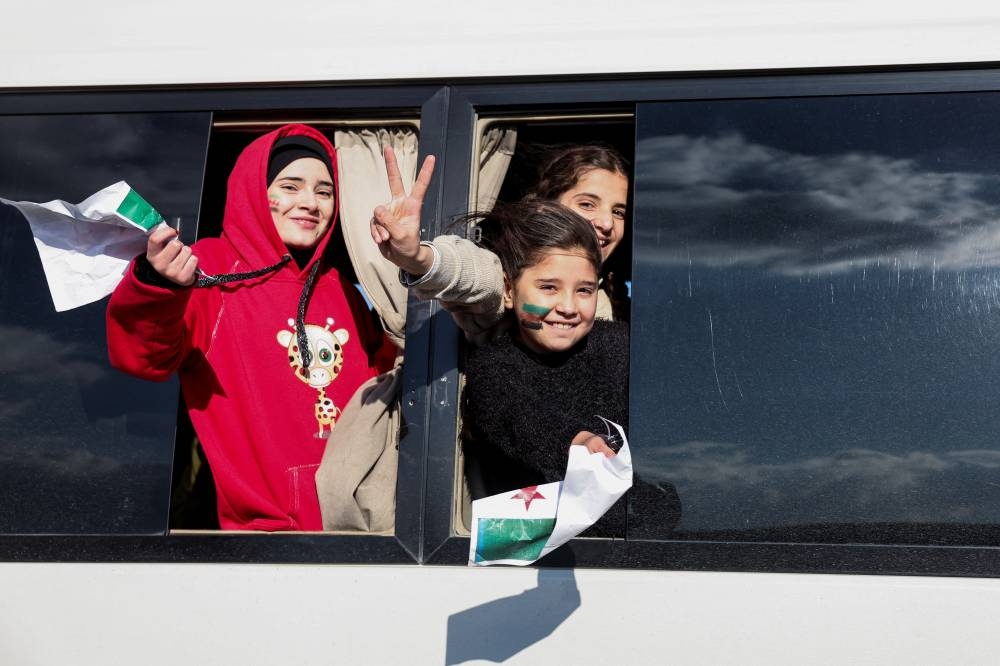
Syrians gesture from a bus as they are heading to Syria, after Syrian rebels announced that they have ousted President Bashar al-Assad, at Majdal Anjar in Bekaa, Lebanon, on Sunday. REUTERS
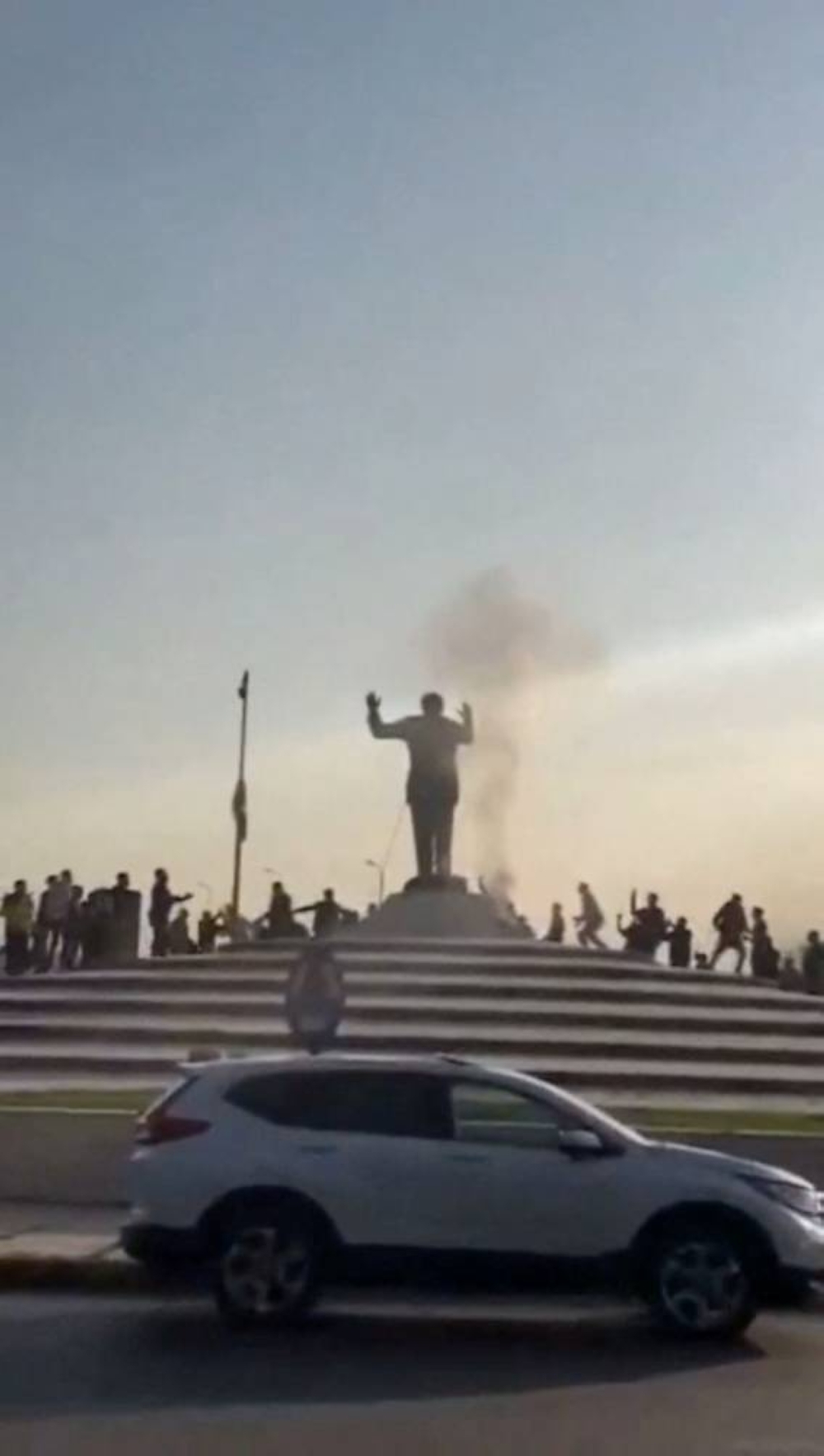
People topple a statue of Syria's Bashar al-Assad, after Syrian rebels announced that they have ousted him, in Tartus, Syria, on Sunday. REUTERS
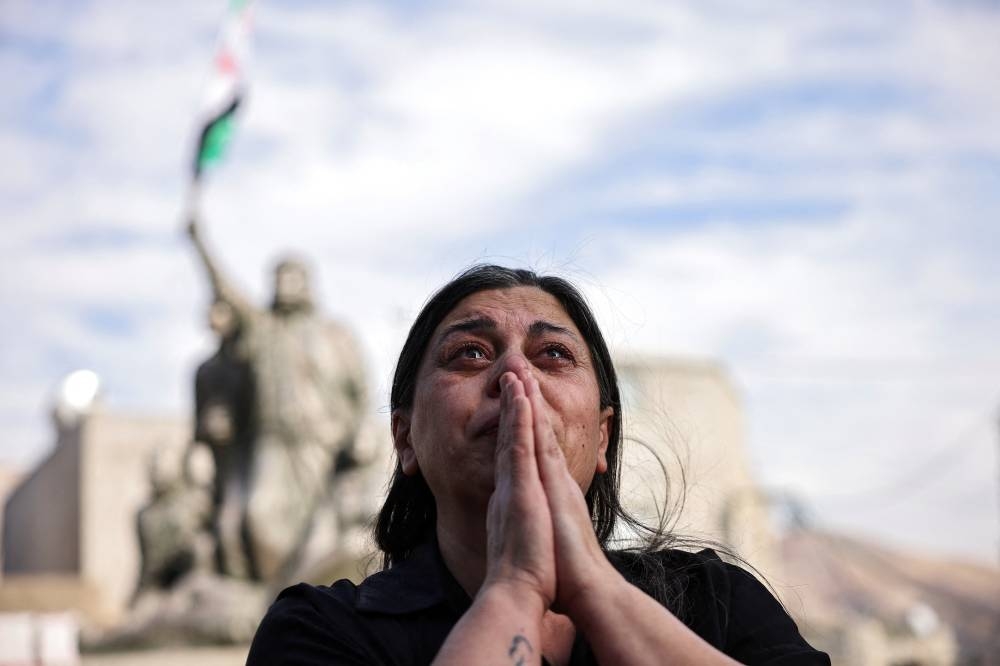
A woman reacts, as people celebrate after Syrian rebels announced that they have ousted President Bashar al-Assad, in Majdal Shams, a Druze village in the Israeli-occupied Golan Heights, on Sunday. REUTERS
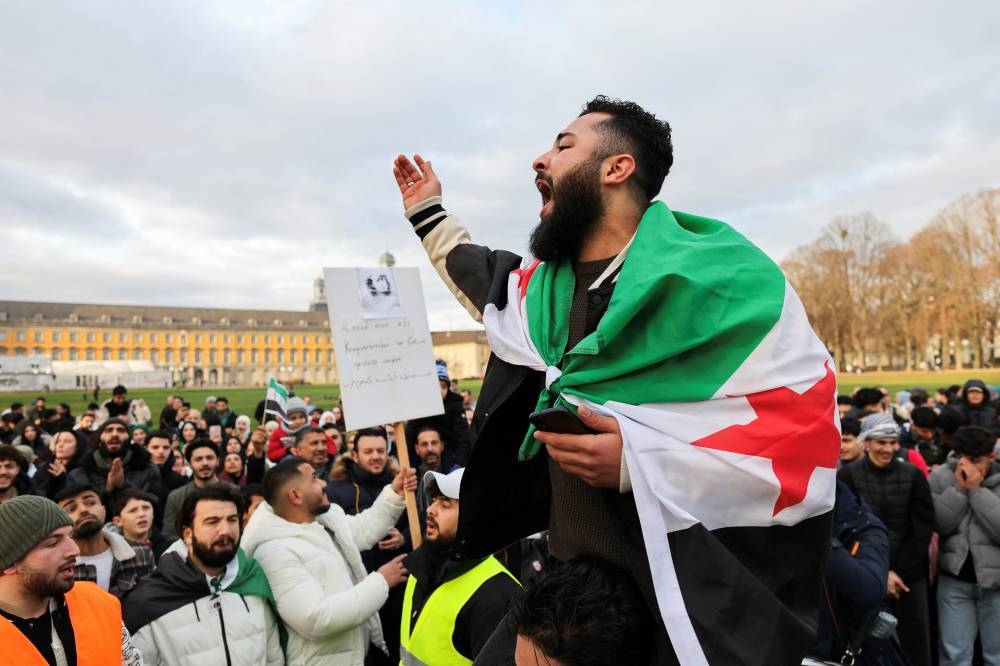
A man draped in a Syrian opposition flag reacts, as people gather on the streets, after Syrian rebels announced that they have ousted Syria's Bashar al-Assad, in Bonn, Germany, on Sunday. REUTERS
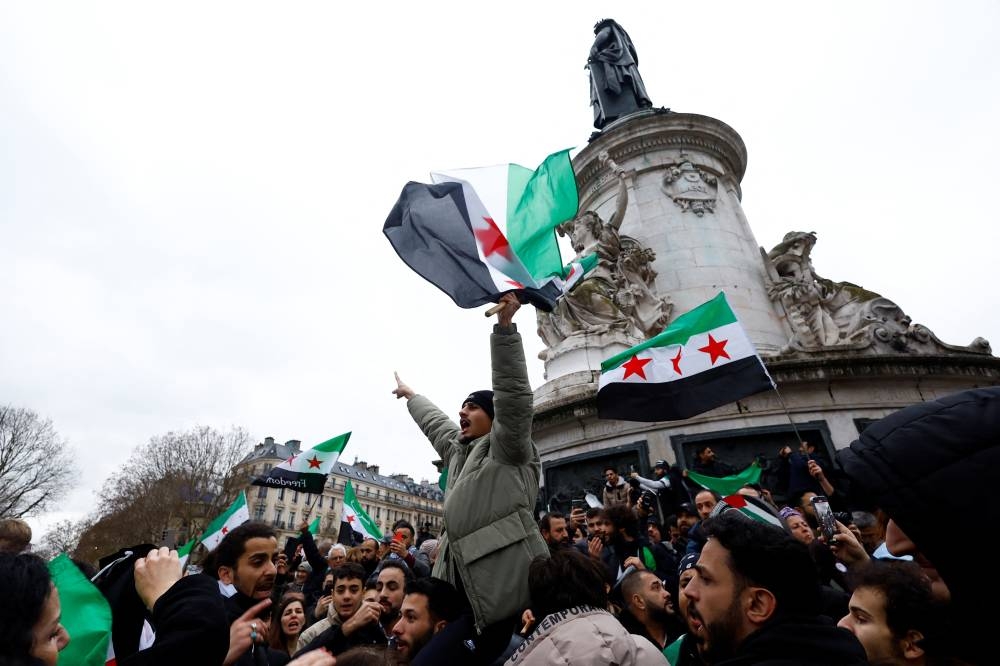
People hold Syrian opposition flags as they celebrate at the Place de la Republique, after Syrian rebels announced that they have ousted President Bashar al-Assad, in Paris, France, on Sunday. REUTERS
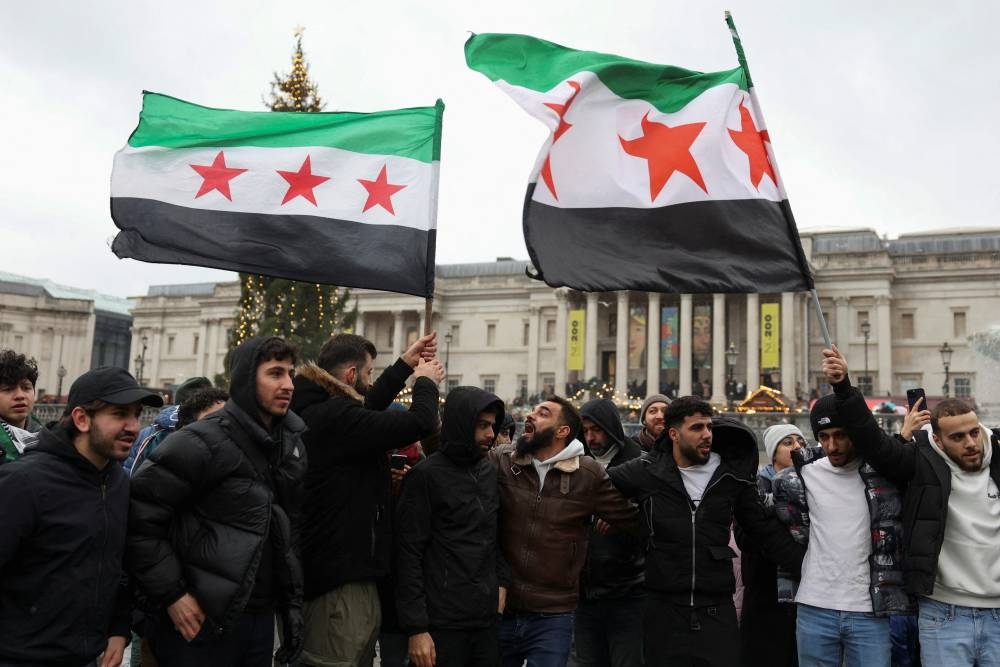
People wave Syrian opposition flags as they gather in Trafalgar Square, after Syrian rebels announced that they have ousted Syria's Bashar al-Assad, in London, Britain, on Sunday. REUTERS
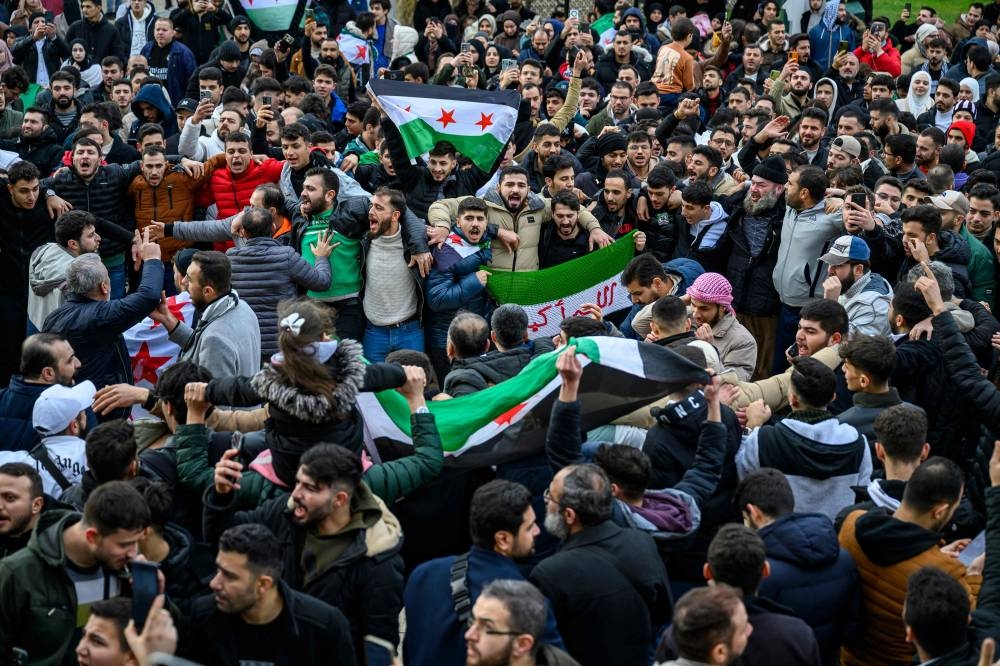
Syrian residents in Turkey wave Syrian opposition flags as they celebrate the end of the Baath rule in Syria after rebel fighters took control of Damascus overnight, at the Fatih Mosque, in Istanbul, on Sunday. AFP
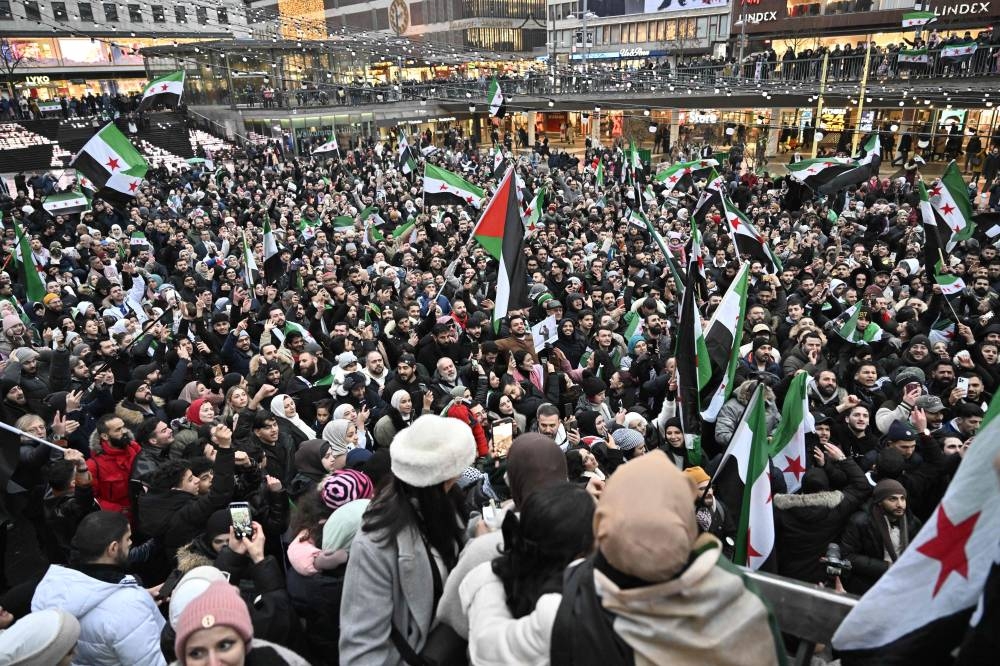
Members of the Syrian community hold Syrian flags as they rally on Sunday on Sergel's Square in Stockholm, Sweden, to celebrate the end of Syrian dictator Bashar al-Assad's rule. AFP
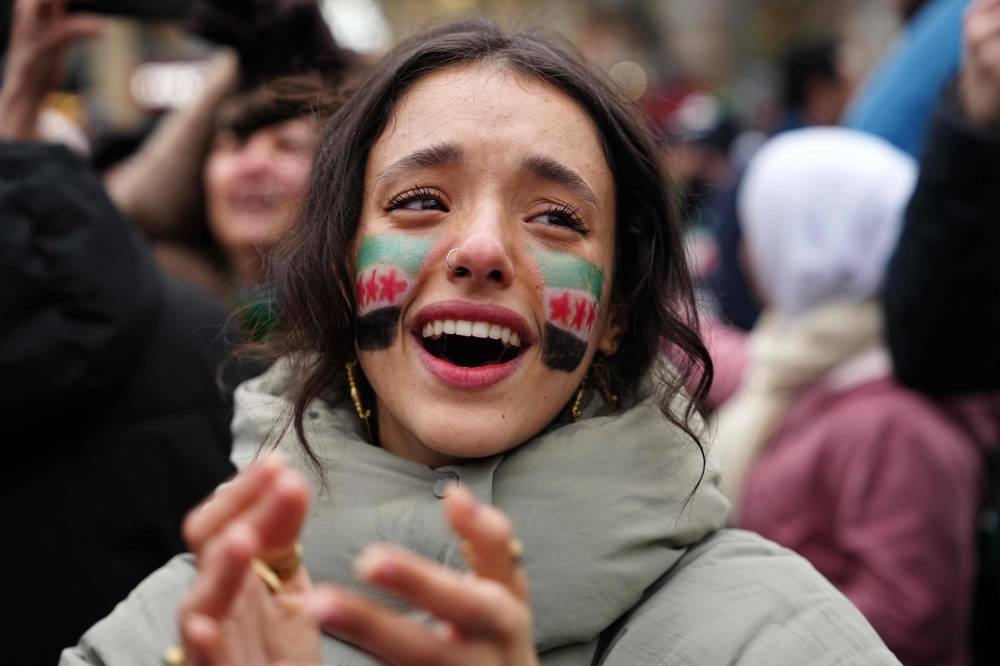
A woman, with an opposition flag painted on her face, applauds as members of the Syrian community and supporters gather to celebrate the fall of Syrian president Bashar al-Assad in the face of an offensive by Islamist-led rebels, in Paris, on Sunday. AFP
